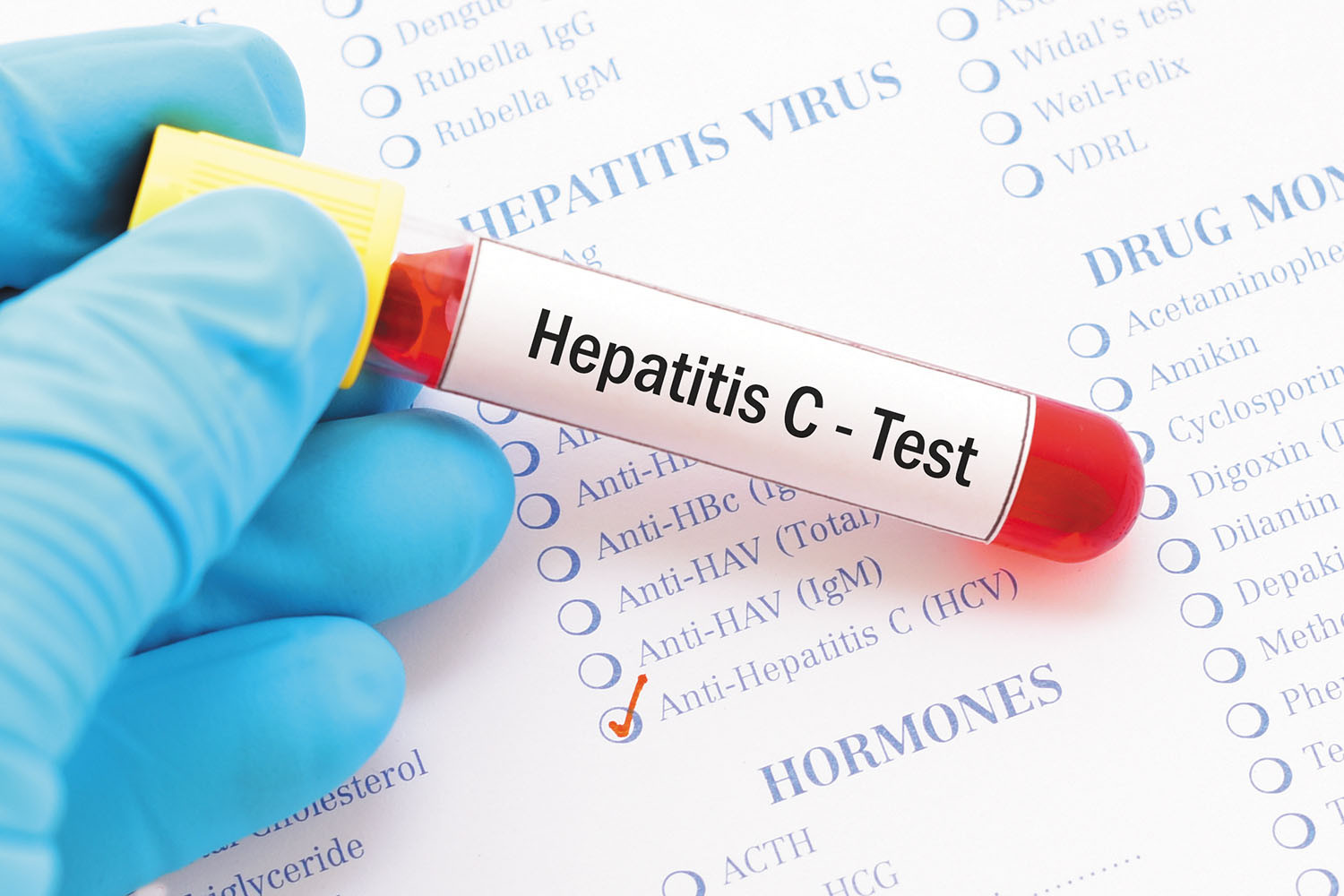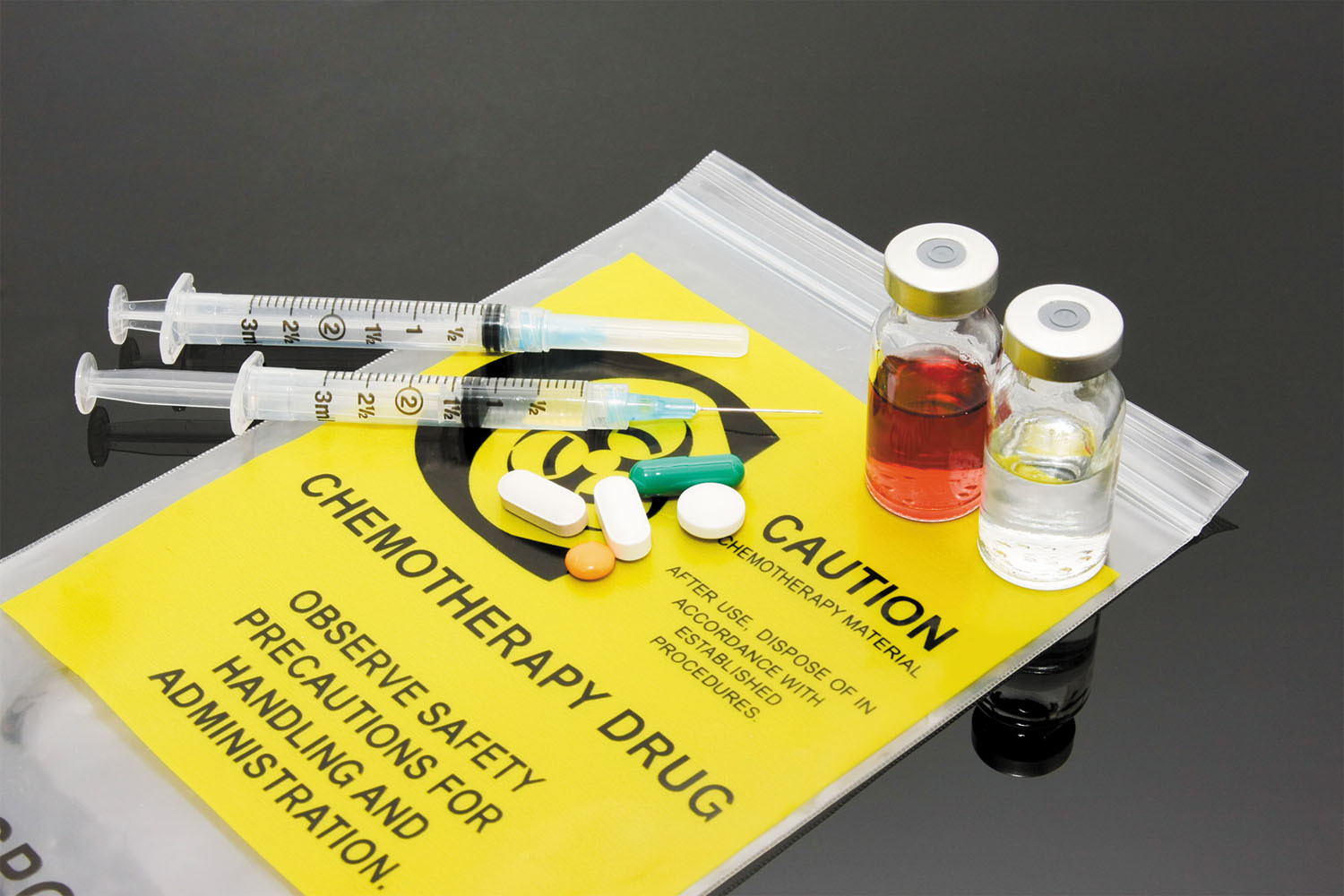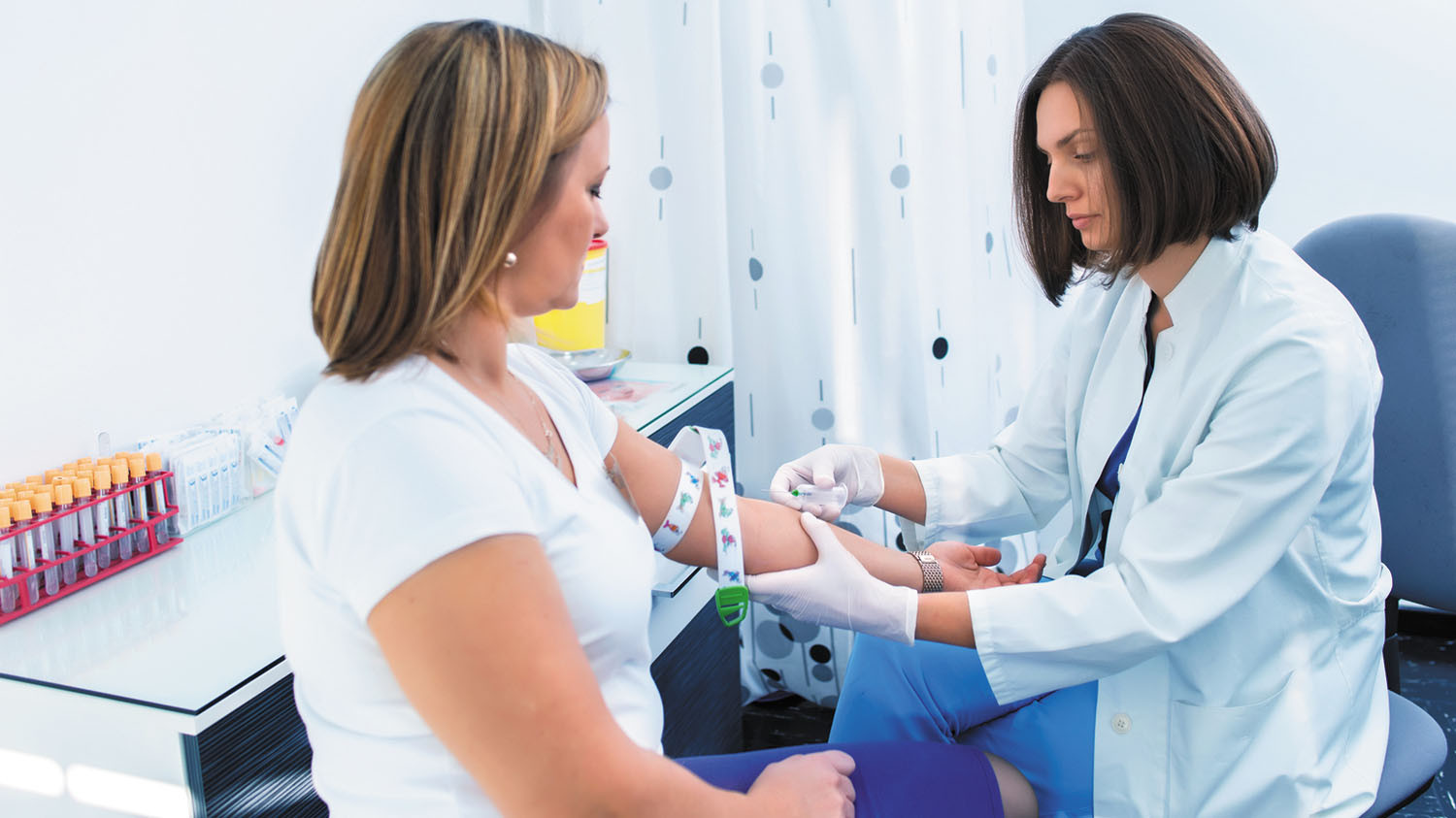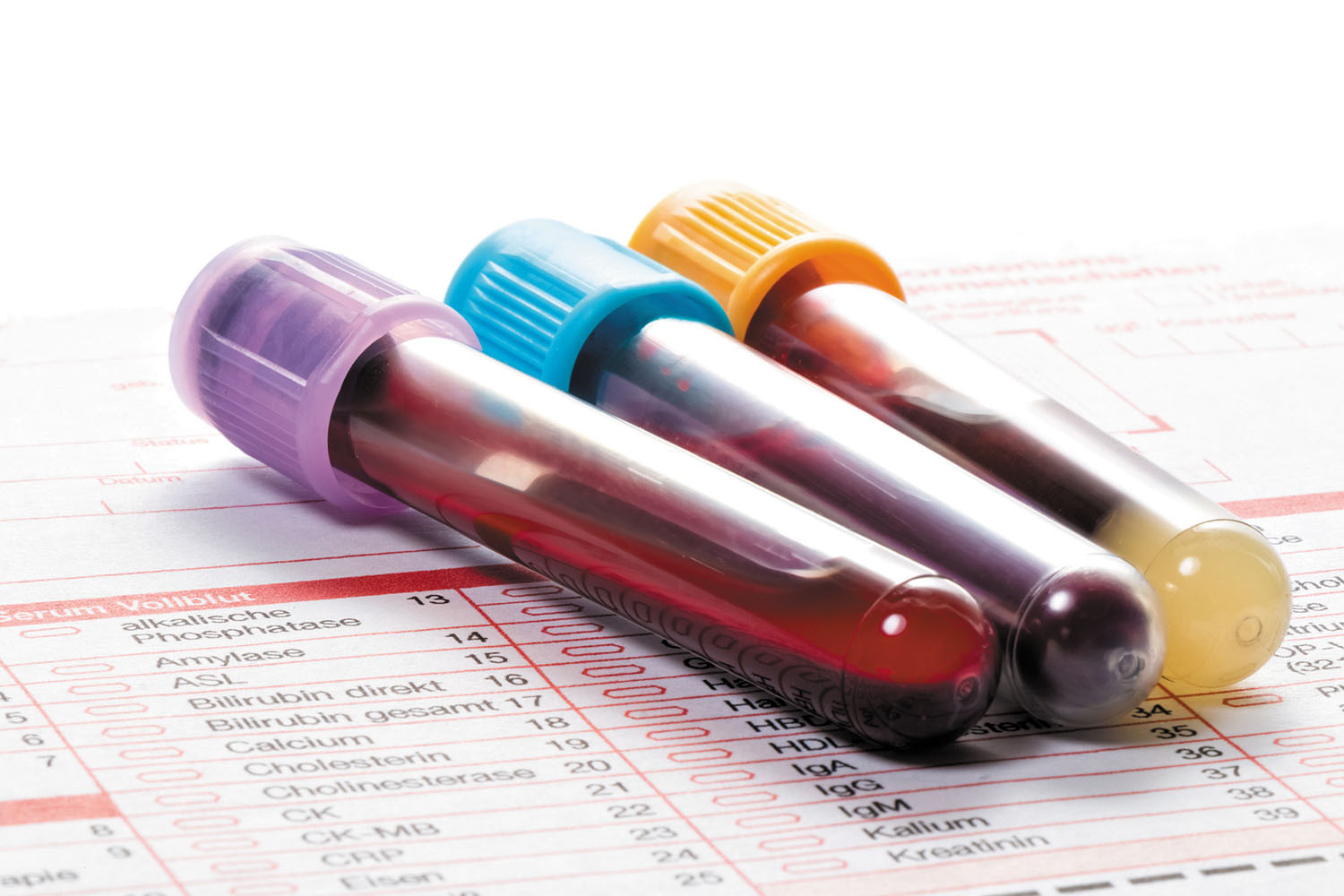
New thinking about plaque in arteries that feed the brain

Want to prevent shifting teeth? Maybe you need retainers

What you need to know about the new dietary guidelines

Food that’s healthier for people and planet can be cheaper, too

New evidence that polyphenol-rich foods help the heart

8 simple ways to reduce ultra-processed foods in your diet

How to curb your stress eating

How to spot Parkinson’s disease symptoms

Heart failure symptoms in women: How they’re different

GERD diet: Foods to avoid to reduce acid reflux
Medical Tests & Procedures Archive
Articles
Should I get tested for hepatitis C?
On call
Image: © jarun011/Getty Images
Q. I have recently been hearing a lot about getting tested for hepatitis C. I don't think I have any risk factors, but is this something I should consider?
A. Hepatitis C is a viral disease that causes inflammation of the liver. The CDC reports that 75% of all current cases of hepatitis C are in the baby boomer generation and many more are undiagnosed. The reason is that a vast majority of people have no symptoms, such as fatigue, muscle and joint pain, abdominal pain, and nausea.
The ears have it
Remember to take care of your hearing, like any other aspect of your health.
When you plan your next series of maintenance health tests, don't forget your ears. An ear and hearing exam is not something that needs to be done every year, but you should be aware of changes that could signal serious problems.
"At the very least, a baseline evaluation can help, so you can monitor changes if your hearing declines," says Dr. Stephen W. Hill, an audiologist at Harvard-affiliated Massachusetts Eye & Ear.
MRI may reduce unnecessary prostate biopsies
In the journals
Only a biopsy can determine for certain whether prostate cancer is present, but a new study suggests that using magnetic resonance imaging (MRI) can help to better identify patients who are more likely to need a biopsy versus those who aren't.
The study, published online Feb. 22, 2018, by JAMA Oncology included 651 men screened for prostate cancer with blood tests and digital rectal exams. Everyone underwent three procedures: an MRI scan, a biopsy guided by transrectal ultrasound (TRUS), and a biopsy guided by both MRI and TRUS.
Treatments for breast cancer may harm the heart
But surveillance and other strategies — especially exercise — can limit the risk.
Image: © Khuong Hoang/Getty Images
Better treatments for breast cancer have contributed to the growing number of breast cancer survivors, now about three million in the United States. However, these women may face a heightened risk of heart disease from the cardiotoxic effects of chemotherapy and radiation, according to a statement from the American Heart Association in the Feb. 20, 2018, issue of Circulation.
Doctors have long known that certain cancer drugs can decrease the heart's pumping ability, especially doxorubicin (Adriamycin) and trastuzumab (Herceptin), two common treatments for breast cancer. Many women receive radiation therapy as well, which can cause heart tissue to scar or stiffen, possibly leading to valve disorders, coronary artery disease, or other heart problems. But specialists who focus on keeping the heart healthy during and after cancer treatment — known as cardio-oncologists — can offer strategies to both prevent and treat heart damage from cancer therapy.
Can this DNA test help predict your longevity?
Telomeres — made of your DNA — are biomarkers of aging.
Image: © Dr_Microbe/Getty Images
There's no crystal ball in medicine that can predict how fast you're aging or how long you'll live. But the latest trend in private screening tests claims to provide a tantalizing clue. The tests offer a snapshot of the length of your telomeres — the protective caps at the ends of chromosomes in your cells.
"The concept is very attractive. There's this visual idea of something acting like a clock counting down to the end, and that's why it's powerful. The problem is that just because it's appealing it doesn't mean it's true," says Dr. William Hahn, a Harvard Medical School professor and chief research strategy officer at Harvard-affiliated Dana-Farber Cancer Institute.
Zap away atrial fibrillation?
Catheter ablation, a procedure that destroys faulty electrical pathways in the heart, is gaining ground.
Atrial fibrillation — called afib for short — is a rapid, irregular heartbeat caused by errant electrical signals in the heart's upper chambers (atria). This heart rhythm disorder becomes more prevalent with age, affecting about one in 11 people ages 65 and older.
The chaotic heartbeat that characterizes afib usually comes and goes and may last anywhere from a few seconds to many hours — or much longer (see "Atrial fibrillation: Defined by its duration"). Although about 20% of people with afib don't notice any symptoms, it can trigger a range of unsettling problems. These include a fluttering or thumping sensation in the chest, breathlessness, dizziness, anxiety, weakness, fainting, confusion, and fatigue.
A blood test to screen for cancer may be just around the corner
Research we're watching
Image: © bluecinema/Getty Images
Your doctor may one day be able to use a simple blood test to find out if you have cancer. Researchers from Johns Hopkins University reported in the January 19 issue of Science that they have developed a blood test that can spot early signs of cancer.
The researchers screened blood for DNA and proteins related to eight different types of cancer. They were able to identify early cancers from more than 1,000 patients with different types of cancer that had not yet spread. Over all, the test found 33% to 98% of cancers, depending on tumor type.
Tracing the heart’s electrical signature
When, why, and how you might get an electrocardiogram.
Although the first recorded electrocardiogram dates back more than a century, this noninvasive test remains one of medicine's essential tools. It's quick and painless, produces results right away, and helps diagnose dozens of heart conditions. Any heart-related symptoms, such as chest pain or palpitations, warrant an electrocardiogram, also known as an ECG or EKG (from the German elektrokardiogramm).
Some primary care providers include an ECG as part of an annual physical exam. Last year, the U.S. Preventive Services Task Force (USPSTF) recommended against routine ECGs in people at low risk of heart disease. But what about people at higher risk, such as those with high blood pressure, elevated cholesterol levels, or even just advancing age? For them, the jury's still out, according to the USPSTF. One possible reason: the task force set a high bar — looking for conclusive proof that a routine ECG led directly to an improvement in outcomes, such as complications related to coronary artery blockages.
A new approach to cancer diagnosis
Liquid biopsies may offer a less invasive alternative than a traditional biopsy.
Image: © fotoquique/Getty Images
A tissue biopsy is the standard test for identifying cancer. Your medical team will use needles or other devices to capture pieces of actual tumor to see if it's malignant or benign. But another approach, called a liquid biopsy, is less invasive and may provide a diagnosis when a biopsy doesn't.
This test uses a person's blood to look for signs of cells or mutated DNA that a tumor has shed into the bloodstream. "By sampling DNA or circulating tumor cells in the blood, we can predict and monitor responses to cancer treatments without subjecting patients to invasive biopsy procedures — and perhaps detect cancer early, before it has had a chance to spread," says Dr. David Miyamoto, assistant professor of radiation oncology at Harvard Medical School.

New thinking about plaque in arteries that feed the brain

Want to prevent shifting teeth? Maybe you need retainers

What you need to know about the new dietary guidelines

Food that’s healthier for people and planet can be cheaper, too

New evidence that polyphenol-rich foods help the heart

8 simple ways to reduce ultra-processed foods in your diet

How to curb your stress eating

How to spot Parkinson’s disease symptoms

Heart failure symptoms in women: How they’re different

GERD diet: Foods to avoid to reduce acid reflux
Free Healthbeat Signup
Get the latest in health news delivered to your inbox!
Sign Up











